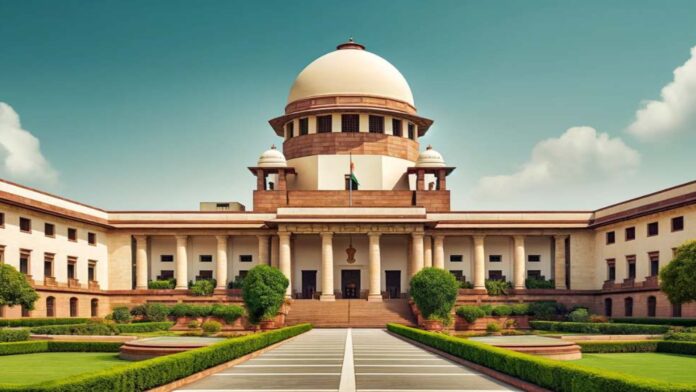The Supreme Court of India will hear a series of petitions today challenging the constitutionality of certain provisions in the Places of Worship (Special Provisions) Act, 1991, which prohibits filing lawsuits to reclaim or alter the character of places of worship as they existed on August 15, 1947.
A special bench comprising Chief Justice of India Sanjiv Khanna and Justices PV Sanjay Kumar and KV Vishwanathan will take up the matter at 3:30 PM.
The petitions, filed by various individuals and organizations, argue that the Act violates fundamental rights guaranteed under Articles 25, 26, and 29 of the Constitution, which safeguard religious freedom and cultural heritage. Petitioners include Maharaja Kumari Krishna Priya (Kashi Royal Family), BJP leader Subramanian Swamy, former MP Chintamani Malviya, and others.
The petitioners claim the Act deprives Hindus, Jains, Buddhists, and Sikhs of their rights to reclaim, restore, and manage their places of worship that were allegedly destroyed by historical invaders.
Key Provisions Under Challenge
- Section 3: Prohibits conversion of a place of worship to one belonging to a different religious denomination.
- Section 4: Bars filing lawsuits or initiating legal proceedings to change the religious character of any place of worship as it existed on August 15, 1947.
The petitioners argue that these provisions infringe upon their right to judicial remedy and prevent them from restoring religious and cultural heritage sites.
Counterarguments and Interventions
The Jamiat Ulama-i-Hind and the All India Muslim Personal Law Board (AIMPLB) have opposed the petitions, stating that allowing challenges to the Act would open a floodgate of litigation against countless mosques and disrupt social harmony.
The Committee of Management Anjuman Intezamia Masjid, which oversees the Gyanvapi mosque complex, has also sought dismissal of the petitions, arguing that the Act preserves the secular fabric of the Constitution by maintaining the status quo of religious sites.
Petitioners’ Concerns
The pleas highlight that the Act discriminates by excluding Lord Rama’s birthplace (addressed in the Ayodhya judgment) while including Lord Krishna’s birthplace, despite both being significant religious sites for Hindus. They claim the retrospective cutoff date of August 15, 1947, is arbitrary and irrational.
One plea states, “The Act deprives Hindus, Jains, Buddhists, and Sikhs of their rights to reclaim religious properties misappropriated by other communities.” It also alleges that the Act infringes upon their right to manage places of worship and pilgrimage under Article 26.
The Supreme Court’s decision on the constitutional validity of the Act is expected to have far-reaching implications for interfaith relations, religious freedom, and the secular ethos of the nation.


